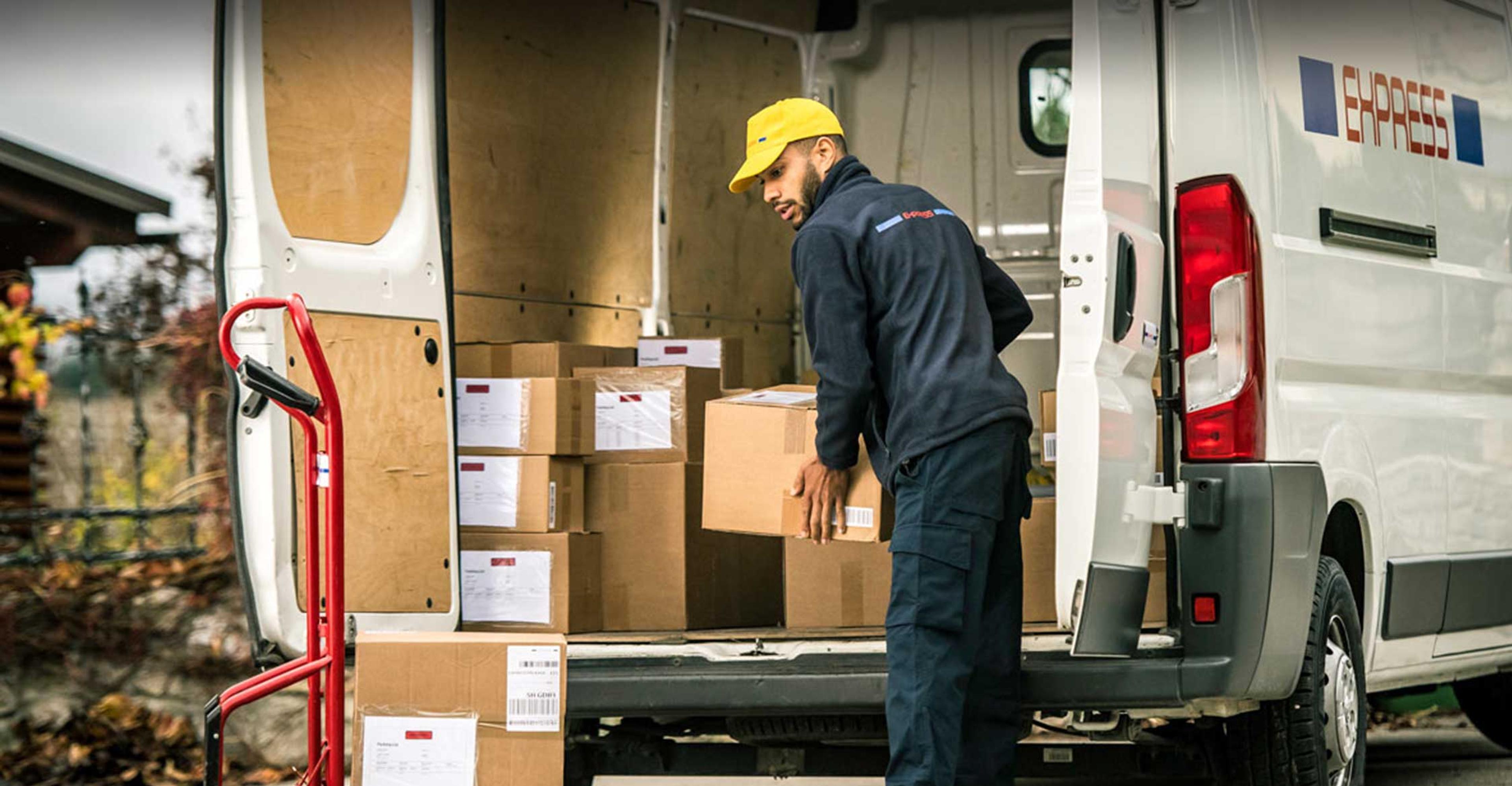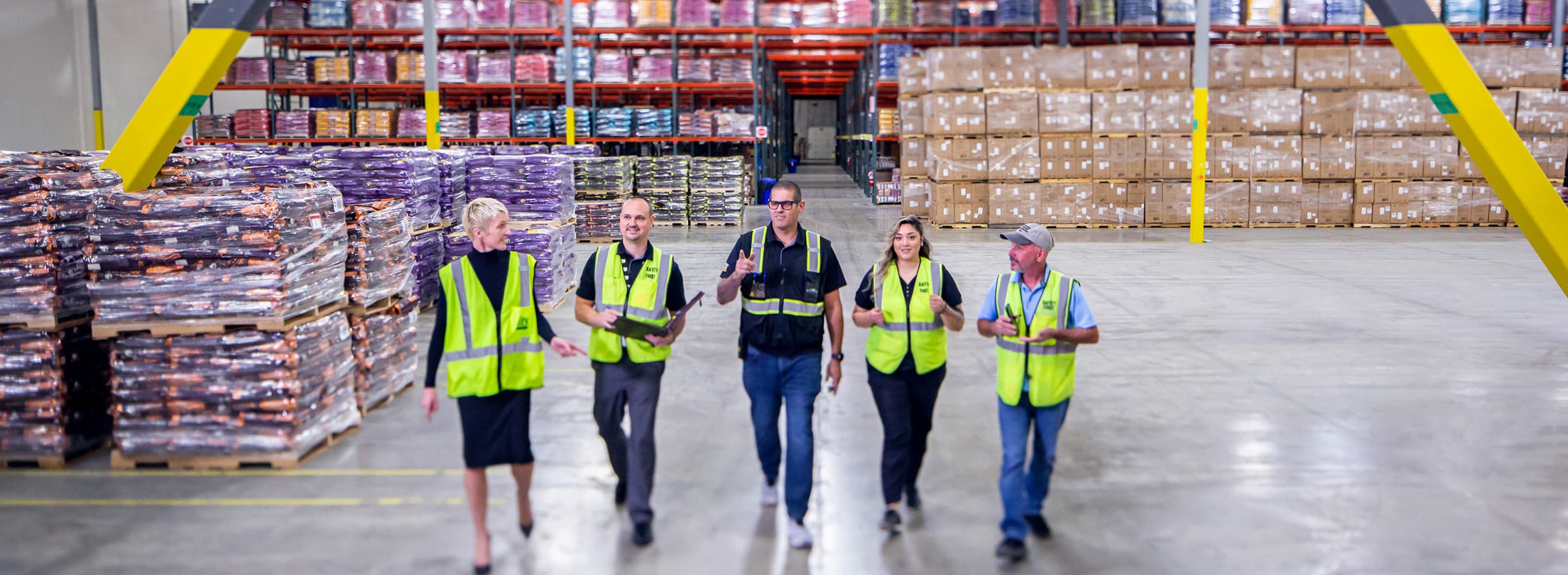The Rise of Regional Parcel Carriers: A Q&A with Kasia Wenker

The events of 2020 brought extreme chaos with a massive increase in demand for direct to consumer fulfillment and package delivery and a decrease in supply for many products. The spigots really opened during April with peak-level volume that many retailers were unprepared for leading to severe supply chain disruptions. This caused the large national carriers to begin limiting volume for their shippers. UPS and FedEx have been very stringent on retailers throughout the pandemic in ways that we’ve never seen before.
Many shippers were already working with regional carriers, but these volume caps have driven even big-box retailers and global companies to start using regional parcel carriers such as OnTrac, LSO, United Delivery Service and LaserShip to supplement their existing final-mile capacity. These alternatives to UPS and FedEx have accelerated their expansion during the COVID-19 pandemic and subsequent parcel boom.
Experts predict that the growth of regional parcel shippers will continue beyond the pandemic. We sat down with ITS Logistics Director of Supply Chain Solutions Kasia Wenker to get her thoughts on the benefits and disadvantages of using regional carriers, and what their growth means for the future of the industry.
Q: Why are regional carriers increasing in popularity?
Kasia: Many shippers have started strategically using the regional carrier market to “diversify the duopoly” of FedEx and UPS. Companies like Walmart, Kohl’s, Best Buy and Ulta started utilizing regional carriers years ago, but they still only make up about 6 to 8 percent of the overall parcel market. The combined revenue of regional carriers is $5 billion to $6 billion compared to the package operations revenue of UPS, which was $61 billion in 2019. Many shippers dislike the lack of competition in the delivery market, with 65% believing there is not enough competition to keep pricing reasonable and service levels high, according to Parcel’s 2019 Carrier Performance Survey. We are now seeing more shippers using regional carriers, which indicates that the trend of diversifying carriers was actually already picking up before COVID hit and the pandemic just accelerated it. Retailers who began looking for regional carriers in the pandemic’s early days did so because they were disappointed with their national carriers’ freight service levels and needed an alternative. The tightened capacity and volume caps really made diversification a necessity for many shippers as they were no longer able to rely solely on carrier negotiation techniques. As a result, regional carriers have made huge gains on the B2C side. Even major carriers are supplementing their services with regional carriers as they continue to be stressed by capacity constraints.
Companies like Walmart, Kohl’s, Best Buy and Ulta started utilizing regional carriers years ago, but they still only make up about 6 to 8 percent of the overall parcel market.
Q: How do you decide if using a regional parcel carrier is the right choice for your business?
Kasia: Regional carriers are not one size fits all. In order to determine whether diversifying your carrier mix with regional carriers is right for you, you must know your delivery objectives, the price of parcel shipping in relation to your product price, and the promised delivery timeline. For example, shippers with customers that are concentrated in a specific market or area are prime candidates for using regional parcel carriers. Before deciding whether or not to use a parcel carrier, it’s important that you look at your shipment volume by origin and distribution center to determine if there are opportunities for your volume to shift. If there’s enough volume to move, review which carriers operate in your regions to see if you should diversify your carrier mix. You also need to look at any discounts you currently have with FedEx or UPS. If you divert some of your volume from them, it could affect pricing and contracts because incentives tend to decrease when volume decreases—meaning you could lose your discounts altogether if your volume falls below a certain threshold.
Q: What are the benefits of regional carriers?
Kasia: A big positive of regional carriers is that they offer a sound delivery promise, which has played a large part in their growing popularity. Much of the time, prices for shippers using regional carriers are lower than with national carriers—they can range from 10-40 percent less expensive. Many regional carriers deliver consistent and high levels of delivery service within a very specific footprint. These regional parcel carriers can often offer faster delivery and customizable pickup times because of their higher concentration in these areas. Regional carriers’ routes have fewer touchpoints, which typically means fewer damages. The regionality of these routes also means they see fewer weather delays. These carriers also offer cost savings because they don’t have plans in their fleets. Overall, their infrastructures are built better for one-day delivery, which is key in customer satisfaction.
Much of the time, prices for shippers using regional carriers are lower than with national carriers—they can range from 10-40 percent less expensive.
Q: What are the disadvantages of regional carriers?
Kasia: Regional parcel carriers aren’t for everyone, and not all shippers have reaped these high service benefits and cost savings. Some of the most common objections to this type of carrier are poor service experiences. In 2020, even regional carriers enacted peak surcharges, but they did not begin as early and are not as high as those from national carriers. It’s no secret that shippers are often hesitant to mix up their carrier services with regional providers because they are not as well-known. This puts the smaller carriers at a disadvantage when competing for customers. The regional carrier market also carries a greater risk of bankruptcy which can dissuade shippers from using these carriers. Additionally, because of the size of their operations, many regional carriers use contracted labor, meaning some routes are serviced by unmarked vehicles or non-uniformed drivers. That image matters to some customers, so it’s important to take that into consideration. I mentioned above they may have a little advantage with the weather. Well, the opposite can be true as well. A massive weather event can halt the operation altogether with no recovery options, leaving the packages stranded.
Q: Are regional parcel carriers going to overtake national ones?
Kasia: No, I don’t foresee shippers abandoning UPS or FedEx anytime soon, but many are using regional carriers on a more frequent basis and will continue to do so unless customer service levels or pricing rapidly go downhill. Market projections indicate that there will continue to be a massive amount of parcel volume to go around and shippers will continue to need to diversify carrier networks in order to accommodate their increased demand. At the end of the day, the best practice is to start with your delivery needs and objectives. Look at where your customer pockets are and examine your service needs by customer and geography, then determine how you can best meet those needs. From there, consider carrier options by taking a holistic look at your delivery objectives and what matters most to you and your customers. Then look at what each carrier has to offer to make the best decision for your business. Under the right circumstances, regional carriers can offer you high service levels and lower costs.
Kasia Wenker has more than 20 years of experience in logistics with a master’s degree in supply chain management and industrial engineering. She traveled around the world three times before settling in Sacramento, CA and is always looking for advice on how to cut transition times in a triathlon. Contact Kasia today at (775) 451-2737 or kwenker@its4logistics.com. If you have any questions or want to discuss whether regional carriers are the right fit for your shipping needs, give Kasia a call today.



